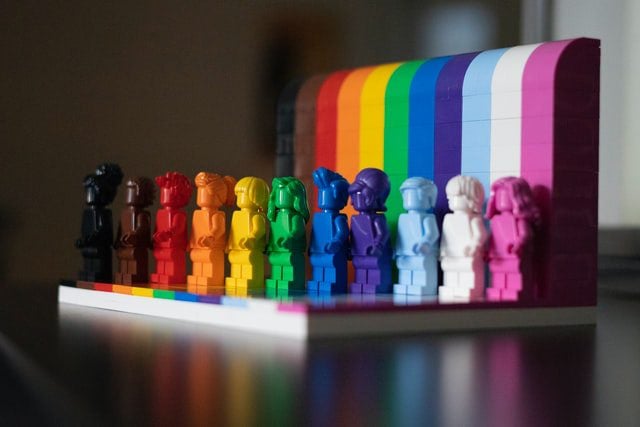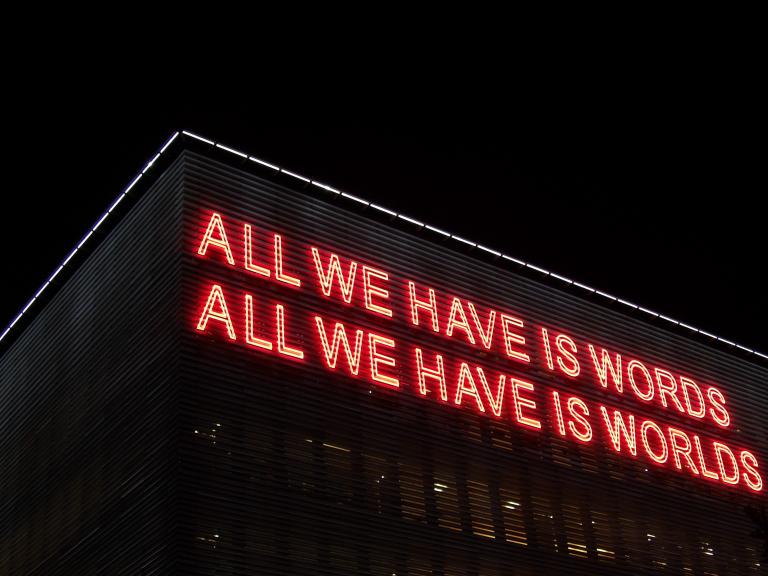
I admit, in the past, I think I have used the phrase “sexual preference” in place of the phrase “sexual orientation.” I did not do so with any cruel intentions. Merely as a word that I pulled out of the language realm that I had heard used by others, to describe those who operate and orient themselves outside of a heterosexual category. What I am learning, however, is that this choice of paired words irritates the wounds of many people. To try and understand why this is the case, so that I can be more compassionate and mindful with my words going forward, I posed this question on my Facebook wall: “Why is using the phrase ‘sexual preference’ problematic? Help me understand.”
Let’s first acknowledge what an incredibly challenging era we are living in. Truly! It seems like things continue to come out of the left field and we are never ready to catch what’s coming next. We are traversing an ever-evolving, ever-expanding journey through the universe and everything changes on us as we change. There are bound to be some missteps and obstacles that make a collective consciousness almost impossible. Talking about why things upset us is part of that paradigm.
We don’t do feelings very well. We suck at expressing them. Sometimes words don’t do it justice and we need facial expressions and a tone of voice that fades or deepens or becomes faster or slower in pace. We need body movement—translating the language of feelings in motion. So, explaining what’s circulating internally is really difficult to express in an external world. And the more conversations I have with people, the more I realize that when we are not face-to-face with someone, the harder it is to have an authentic exchange of ideas or feelings. It’s easier for us to get more offended without proximity.
The most direct effect of change happens in proximity. In fact, it’s intimate. It’s upfront and close. It’s in your face. If we want to understand something, we come closer to who or what we are trying to understand. When I want to see something more accurately, I look at it closer.
This is how Jesus was able to impact people, but also why Jesus only impacted so few people in the beginning. In the Gospel of Matthew, Jesus has to explain one of the parables to the disciples because they don’t quite understand. The disciples question Jesus’ methods and ask him why he uses parables.
He replied, “Because the knowledge of the secrets of the kingdom has been given to you, but not to them. Whoever has been given, will be given more, and they will have abundance. Whoever does not have, even what they have will be taken from them. This is why I speak to them in parables:
‘Through seeing, they do not see;
through hearing, they do not hear or understand.
In them is fulfilled the prophecy of Isaiah:
‘You will be ever hearing but never understanding;
you will be ever seeing but never perceiving.
For the people’s hear has become calloused;
they hardly hear with their ears,
and they have closed their eyes.
Otherwise they might see with their eyes, hear with their ears,
understand with their hearts
and turn, and I would heal them.’But blessed are your eyes because they see, and your ears because they hear…”
(Matthew 13:11-16, NIV)
Those who wanted to know what the heck Jesus was talking about, stuck around to follow him and ask questions. They had to be aware of what his words meant in juxtaposition with his actions. That is a gift we are not extended in the social media world. We don’t get to see how people’s words are tied to their actions, values, and principles. We don’t have insight into their world. We have no intimate knowledge of the words we read, that they used, that pick at our scabs. We also lack the tone and emotionality of the words we exchange by taking the voice component out of the conversation.
There’s also this little unwritten assumption that asking questions means you don’t understand. Or that you disagree with the statement altogether. But this is just a silly little expectation of understanding that makes a connection so darn difficult! When I ask anyone a question, it’s because I want to be sure I am understanding them, not because I disagree with them. I can only imagine that’s most likely the case for many people. So, to redirect to the question I posed about “sexual preference,” I’d like all of this to be considered. On the surface, if someone tells me that a word or phrase that was used is offensive to them, I can easily just avoid using the term and nothing else needs to become of it.
I think about the times when my children were younger and first developing language. I censored people around my children as I didn’t want their first words to be “fuck” or “shit.” I wanted to ensure that the words my children were using were also words they understand. How do you explain “fuck” to a 2-year-old? Nobody knows, so we just try to refrain from teaching them that as a commonly used word until they are older and can understand the meaning(s) behind the term. Or perhaps you just don’t teach your child that term at all. Your choice.
Here, in light of the recent surge of “sexual preference” upset, there’s a simple solution. Apply the same idea. If someone asks you not to use a phrase because it upsets or offends them, simply stop. It takes nothing away from anyone and it really doesn’t hurt. If we can do this with children and it works, I would assume adults can get the hang of it. We refrain from some words and subsequently retrain our brains to opt for more polite choice words and phrases.
What I learned about the phrase is insightful. It wasn’t that I wasn’t going to stop using it unless someone gave me a good enough reason or anything. I mean, if someone asks me to stop saying something because it brings up old wounds, I am going to stop, and I don’t need to know where those wounds come from. But if you know me, you know I dig further. I want the story if the person is willing to share it with me. And thankfully, there were some people willing to do just that.
So, if you need further understanding, I implore you to reflect on this lovely feedback.
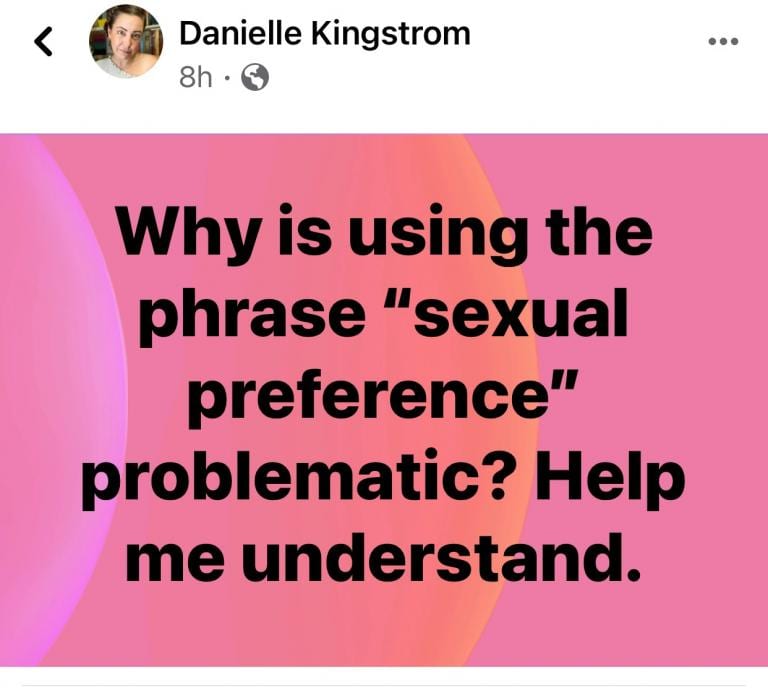
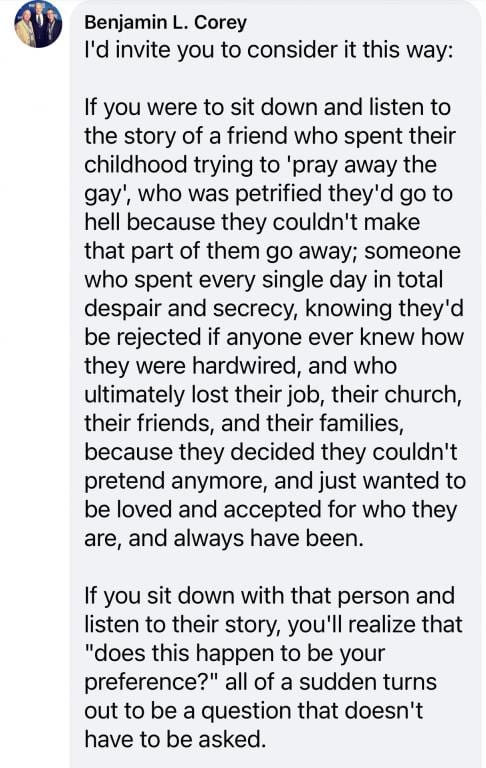

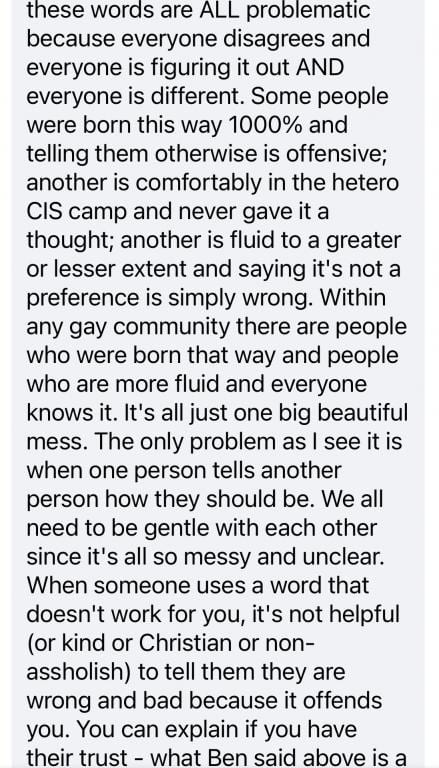
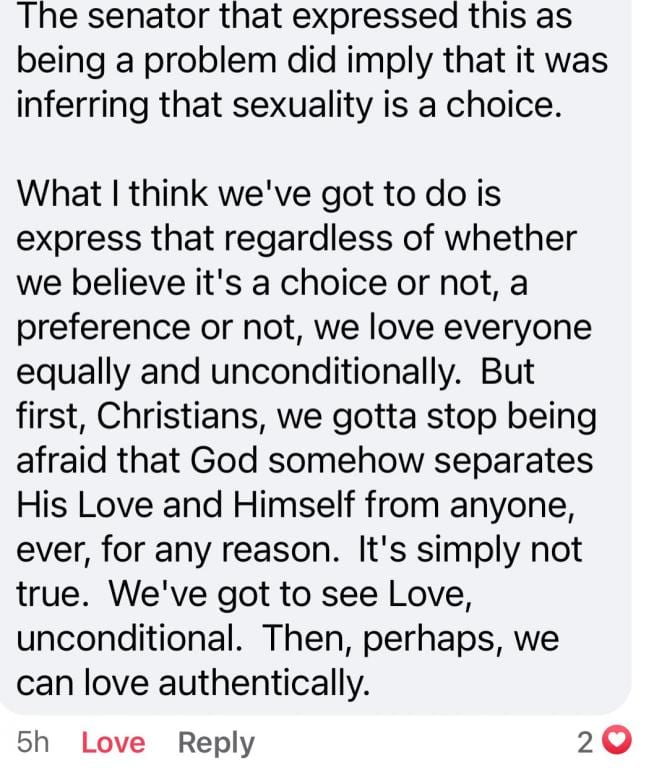
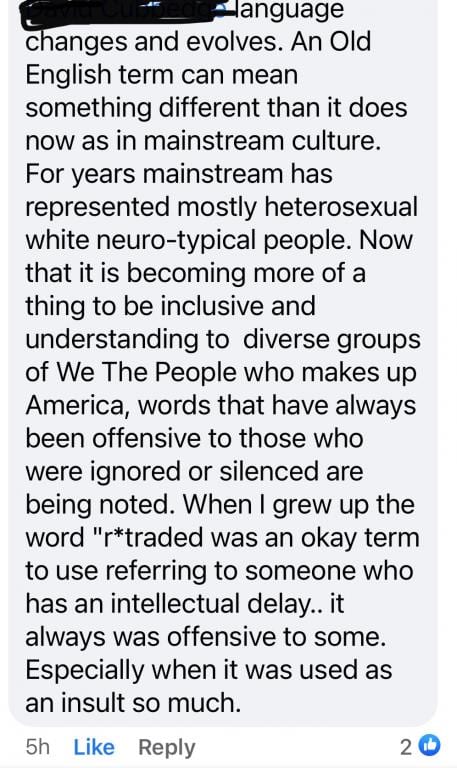
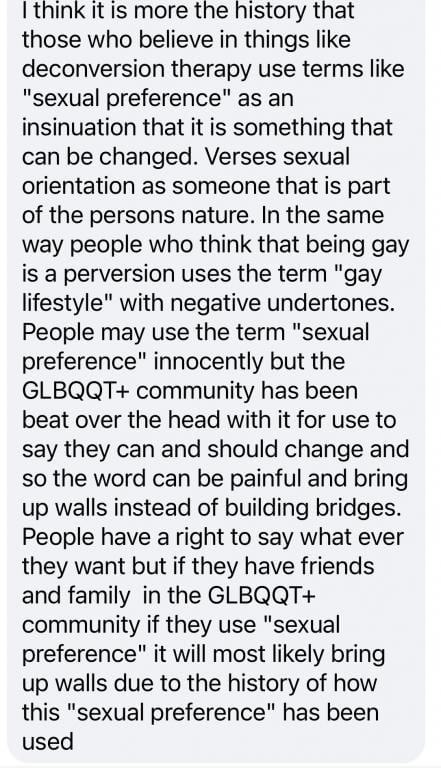
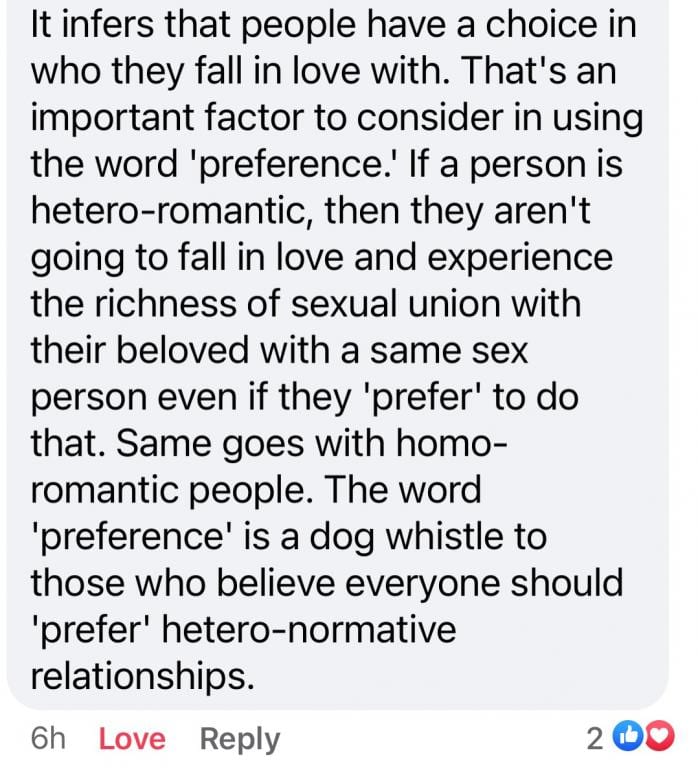
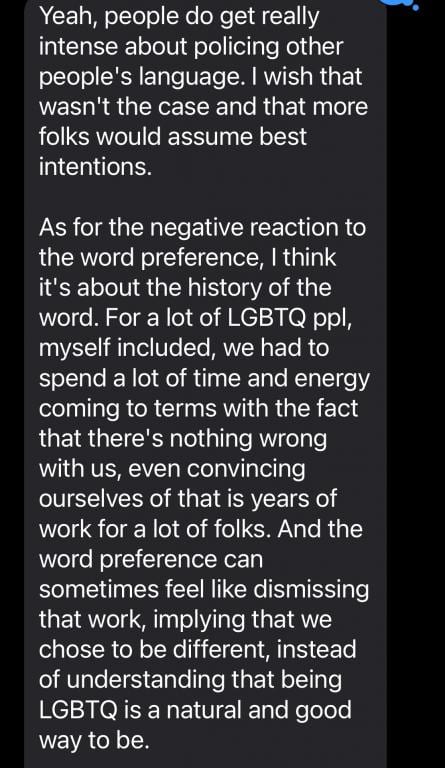
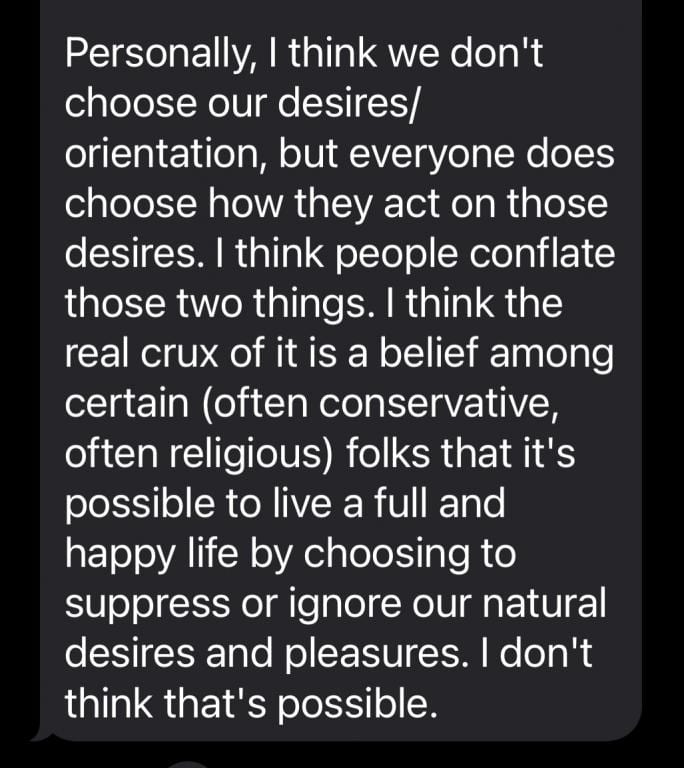
Words matter. If someone tells us that the word we use wounds them, let’s listen. As a friend said, “We all need to be gentle with each other since it’s all so messy and unclear.” The world and all of its beautiful layers are, indeed, messy and unclear. We should be grateful that all we have to do is adjust our lens and pick up a few things to clear and clean it all up.







